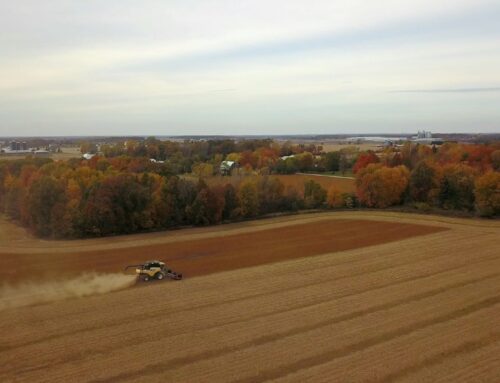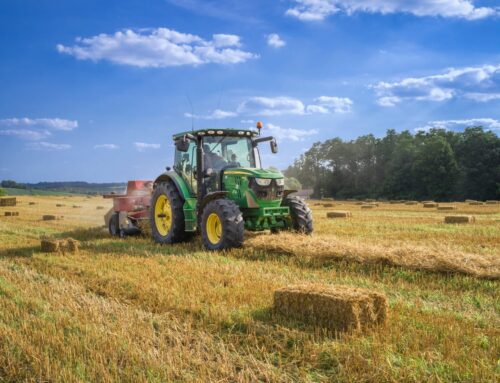WASHINGTON, D.C. – Following calls by special interest groups for Agriculture Committee members in the U.S. House and Senate to increase reference prices in the upcoming Farm Bill, U.S. Rep. Alex Mooney, R-WV, championed a letter in which he was joined by Reps. Andy Ogles, R-TN, Brian Mast, R-FL, Andy Biggs, R-AZ, Carol Miller, R-WV, and Nancy Mace, R-SC, to House Agriculture Committee leaders in “strong opposition” to the potential increases that would only further drive-up inflation.
“At a time when Congress must be taking steps to reduce federal spending, we must resist costly attempts to expand the scope of government intervention in the free market,” said U.S. Rep. Alex X. Mooney, R-WV.
“In recent years, certain agribusinesses enjoyed record levels of farm subsidies. Meanwhile, farm income reached record highs,” said Joshua Sewell, Director of Research & Policy, Taxpayers for Common Sense. “Farm lobbyist proposals to further increase farm subsidies – through higher government enforced reference prices – isn’t something most farmers are asking for. Taxpayers shouldn’t be forced to stomach these costs. We thank Representative Mooney and other Members of Congress for leadership on this important issue.”
“The federal government’s irresponsible deficit spending is a key cause of recent increases to both inflation and interest rates, creating hardship for millions of American families,” said David Ditch Senior Policy Analyst at The Heritage Foundation. “This is only going to get worse in the years to come, especially if well-connected special interests successfully lobby Washington for bigger handouts. With the bulk of federal farm subsidies such as reference price support going to the largest and most financially stable agribusinesses, increasing reference prices without any offsetting reforms makes no economic sense. Such a move would also put more inflationary pressure on the cost of farm inputs. Respect and admiration for hardworking farmers should not be twisted into providing larger payments to corporate conglomerates and wealthy landowners.”
“Despite economic fluctuations and at times unfavorable weather conditions, the overall agriculture industry is thriving with persistent record high net incomes, increasing assets, and shrinking bankruptcy rates,” Nan Swift, Fellow, R Street Institute. “These are good reasons to reconsider already overly generous and costly subsidies, not to add to our already unsustainable debt, with unnecessary plus-ups to duplicative and anti-free market commodity programs. R Street Institute applauds Rep. Alex Mooney and his colleagues for their principled leadership against reference price hikes.”
“At a time of massive federal budget deficits, efforts to control spending are particularly important. NTU endorses the opposition to reference price increases led by Rep. Mooney and his colleagues,” said Bryan Riley, a spokesperson for the National Taxpayers Union.
“Increasing reference prices in the upcoming Farm Bill would do nothing to help the majority of American farmers across the nation and would further drive inflation while adding to the national debt,” said Adam Brandon, President at FreedomWorks. “We applaud Rep. Mooney and his colleagues for their leadership and hope Agriculture Committee leaders will move forward with a commonsense Farm Bill that reins in government spending and handouts.”
These higher price guarantees would mostly benefit fewer than 6,000 farms in a few states, according to recent information brought to light. The U.S. Dept. of Agriculture (USDA) estimates there are approximately 2 million farms in the U.S. Raising reference prices would benefit less than 0.3 percent of these operations.
Increasing price guarantees for major crops would mostly benefit farmers of peanuts, cotton and rice in Southern states, not corn and soybean farmers, as watchdog groups have previously found, which further limits the overall benefit of increasing price guarantees.
Only 5,630 farmers, mostly located in Southern states, received more than $50,000 in 2021 through the Price Loss Coverage, or PLC, program, according to USDA data, and would get more than a few thousand dollars if price guarantees went up.
Most of the farms that benefit from increasing the price guarantees in the PLC program are located in just 48 congressional districts. And most of the farmers in these districts – 92 percent – do not grow the common “covered commodities” eligible for PLC payments, EWG found. So increasing price guarantees fails to help most farmers, including most farmers in the South.
Farmers growing cotton, rice and peanuts get a payment that covers the difference between the price guarantee in the farm bill and the market price. While other crops are eligible for this program, cotton, rice and peanuts have higher payment rates, so farmers of these crops will benefit most.
Since payments are linked to production, the largest producers get the lion’s share of the funding. In 2021, just 10 percent of farmers received more than 80 percent of all PLC payments.
The Congressional Budget Office projects that rice and peanut farmers will already take in at least three times more per acre in subsidies, compared to corn, and six times more in funding per acre than soybeans, even without increasing price guarantees. And cotton is projected to take in at least twice as much as soybean.
Read the original letter below:











Get Social